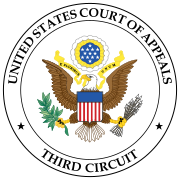Unprotected
speech | Incitement
and sedition | |
|---|
Libel and
false speech | |
|---|
Fighting words and
the heckler's veto | |
|---|
| True threats | |
|---|
| Obscenity | - Rosen v. United States (1896)
- United States v. One Book Called Ulysses (S.D.N.Y. 1933)
- Roth v. United States (1957)
- One, Inc. v. Olesen (1958)
- Smith v. California (1959)
- Marcus v. Search Warrant (1961)
- MANual Enterprises, Inc. v. Day (1962)
- Jacobellis v. Ohio (1964)
- Quantity of Books v. Kansas (1964)
- Ginzburg v. United States (1966)
- Memoirs v. Massachusetts (1966)
- Redrup v. New York (1967)
- Ginsberg v. New York (1968)
- Stanley v. Georgia (1969)
- United States v. Thirty-seven Photographs (1971)
- Kois v. Wisconsin (1972)
- Miller v. California (1973)
- Paris Adult Theatre I v. Slaton (1973)
- United States v. 12 200-ft. Reels of Film (1973)
- Jenkins v. Georgia (1974)
- Southeastern Promotions, Ltd. v. Conrad (1975)
- Erznoznik v. City of Jacksonville (1975)
- Young v. American Mini Theatres, Inc. (1976)
- Vance v. Universal Amusement Co., Inc. (1980)
- American Booksellers Ass'n, Inc. v. Hudnut (7th Cir. 1985)
- People v. Freeman (Cal. 1988)
- United States v. X-Citement Video, Inc. (1994)
- Reno v. ACLU (1997)
- United States v. Playboy Entertainment Group, Inc. (2000)
- City of Los Angeles v. Alameda Books, Inc. (2002)
- Ashcroft v. ACLU I (2002)
- United States v. American Library Ass'n (2003)
- Ashcroft v. ACLU II (2004)
- Nitke v. Gonzales (S.D.N.Y. 2005)
- United States v. Williams (2008)
- American Booksellers Foundation for Free Expression v. Strickland (6th Cir. 2009)
- United States v. Kilbride (9th Cir. 2009)
- United States v. Stevens (2010)
- Brown v. Entertainment Merchants Ass'n (2011)
- FCC v. Fox Television Stations, Inc. (2012)
|
|---|
Speech integral
to criminal conduct | |
|---|
|
|---|
| Strict scrutiny | |
|---|
| Vagueness | |
|---|
Symbolic speech
versus conduct | |
|---|
Content-based
restrictions | |
|---|
Content-neutral
restrictions | |
|---|
| Compelled speech | |
|---|
Compelled subsidy
of others' speech | |
|---|
Government grants
and subsidies | |
|---|
Government
as speaker | |
|---|
| Loyalty oaths | |
|---|
| School speech | |
|---|
| Public employees | |
|---|
Hatch Act and
similar laws | |
|---|
Licensing and
restriction of speech | |
|---|
| Commercial speech | - Valentine v. Chrestensen (1942)
- Rowan v. U.S. Post Office Dept. (1970)
- Pittsburgh Press Co. v. Pittsburgh Comm'n on Human Relations (1973)
- Lehman v. Shaker Heights (1974)
- Goldfarb v. Virginia State Bar (1975)
- Bigelow v. Virginia (1975)
- Virginia State Pharmacy Bd. v. Virginia Citizens Consumer Council (1976)
- Linmark Assoc., Inc. v. Township of Willingboro (1977)
- Carey v. Population Services International (1977)
- Bates v. State Bar of Arizona (1977)
- In re Primus (1978)
- Ohralik v. Ohio State Bar Association (1978)
- Friedman v. Rogers (1979)
- Consol. Edison Co. v. Public Serv. Comm'n (1980)
- Central Hudson Gas & Electric Corp. v. Public Service Commission (1980)
- Metromedia, Inc. v. San Diego (1981)
- In re R.M.J. (1982)
- Hoffman Estates v. The Flipside, Hoffman Estates, Inc. (1982)
- Zauderer v. Off. of Disciplinary Counsel of Supreme Court of Ohio (1985)
- Pacific Gas & Electric Co. v. Public Utilities Comm'n of California (1986)
- Posadas de Puerto Rico Assoc. v. Tourism Co. of Puerto Rico (1986)
- San Francisco Arts & Athletics, Inc. v. U.S. Olympic Committee (1987)
- Shapero v. Kentucky Bar Association (1988)
- Riley v. Nat'l Fed'n of the Blind (1988)
- State University of New York v. Fox (1989)
- Peel v. Attorney Registration and Disciplinary Commission of Illinois (1990)
- City of Cincinnati v. Discovery Network (1993)
- Edenfield v. Fane (1993)
- United States v. Edge Broadcasting Co. (1993)
- Ibanez v. Florida Dept. of Business and Professional Regulation, Bd. of Accountancy (1994)
- Lebron v. National Railroad Passenger Corp. (1995)
- Rubin v. Coors Brewing Co. (1995)
- Florida Bar v. Went For It, Inc. (1995)
- 44 Liquormart, Inc. v. Rhode Island (1996)
- Glickman v. Wileman Brothers & Elliot, Inc. (1997)
- Greater New Orleans Broadcasting Assn., Inc. v. United States (1999)
- Los Angeles Police Department v. United Reporting Publishing Co. (1999)
- United States v. United Foods Inc. (2001)
- Lorillard Tobacco Co. v. Reilly (2001)
- Thompson v. Western States Medical Center (2002)
- Nike, Inc. v. Kasky (2003)
- Johanns v. Livestock Marketing Ass'n (2005)
- Tennessee Secondary School Athletic Assn. v. Brentwood Academy (2007)
- Milavetz, Gallop & Milavetz, P.A. v. United States (2010)
- Jerman v. Carlisle, McNellie, Rini, Kramer & Ulrich LPA (2010)
- Sorrell v. IMS Health Inc. (2011)
- Expressions Hair Design v. Schneiderman (2017)
- Matal v. Tam (2017)
- Iancu v. Brunetti (2019)
- Barr v. American Association of Political Consultants (2020)
- Vidal v. Elster (2024)
|
|---|
Campaign finance
and political speech | |
|---|
| Anonymous speech | |
|---|
| State action | |
|---|
| Official retaliation | |
|---|
| Boycotts | |
|---|
| Prisons | |
|---|

 This article incorporates public domain material from this U.S government document.
This article incorporates public domain material from this U.S government document. 










